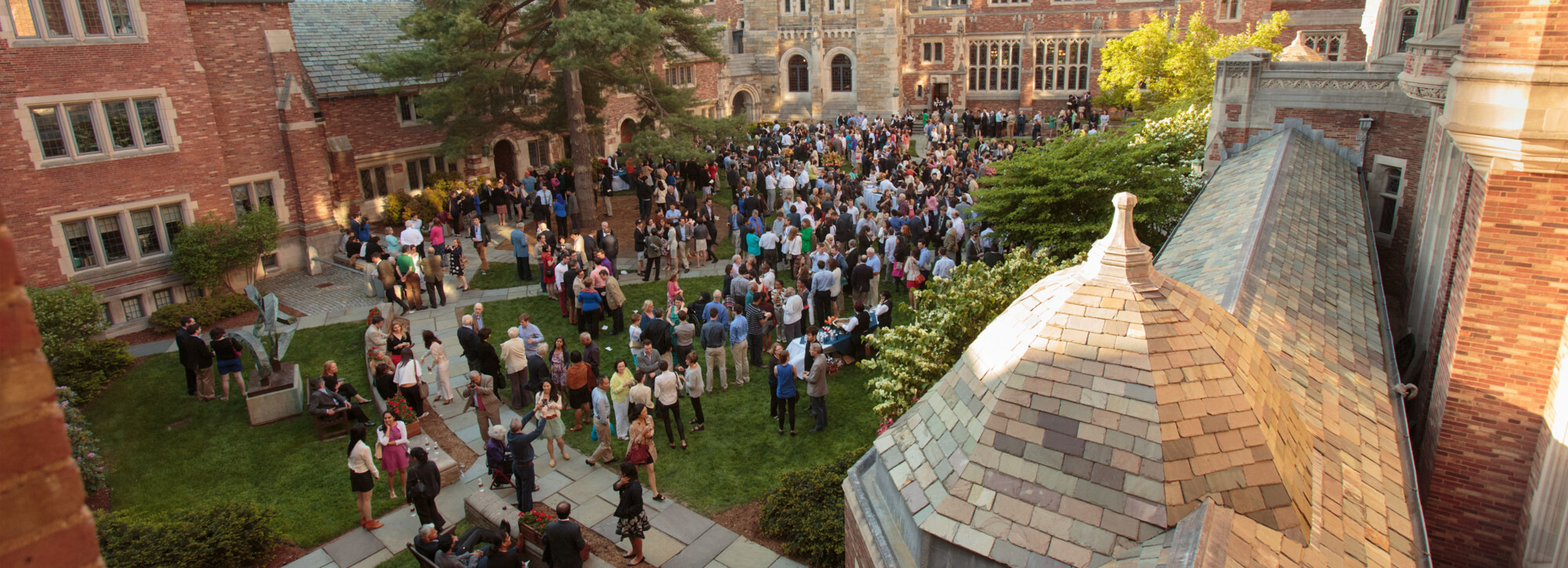
That passion remained at the fore of my work in law school. I spent two and a half years in the Education Adequacy Clinic, was a member of the Project for Law and Education at Yale, researched issues like the school-to-prison pipeline, and wrote on Head Start and Race to the Top. The diversity and flexibility of YLS afforded me so many incredible opportunities to gain experience and knowledge in the areas I loved.
Yet, in the swirl of “what comes next” anxiety between 2L and 3L year, I began to lose confidence in my purpose. Suddenly, it felt like everyone was either applying to clerkships or working for a firm. It seemed that maybe my best bet was to do what everyone else was doing. No one in my family or among my close friends had gone to law school. I felt I was always learning just a tad too late how things worked—maybe I should be seeking jobs in these fields too. I panicked and made some very half-hearted attempts to pursue these opportunities. Unsurprisingly, and thankfully, these did not pan out. The truth was that the practice of law was never an end to me, only a means; uncoupled from the issues about which I was passionate, it was of minimal interest as a career path.
At the start of my 3L year, I spent a considerable amount of time thinking about what I really wanted to do after law school, speaking with public interest staff, professors, and my friends. Quite quickly, I came back to the beginning. I drafted a fellowship project that melded my passions for education, at-risk children, and equal justice. I literally wrote my dream job and a Yale Public Interest Fellowship funded it.
My host organization was the L. David Shear Children’s Law Center of Bay Area Legal Services, Inc., in my hometown of Tampa. During my fellowship year, I handled a small caseload of about ten child clients in dependency court and worked on a project to increase the number of dependent youth enrolled in high quality early education in my community. As part of this project, I wrote an Early Education Advocacy Manual for our office; trained over one hundred foster and adoptive parents on the importance of quality early education and how to identify programs offering this experience; and created a multidisciplinary collaborative with the goal of ensuring that all zero- to five-year-old dependent children in Hillsborough County would receive a high quality early education.
I spent six years at the CLC, advocating for a caseload of 40 - 45 child clients and overseeing the ongoing work of the High Quality Early Education for Dependent Youth Collaborative. During this time, the collaborative transformed child welfare, dependency court, and child care practice in our county to realize dependent children’s right to a quality early education, and prompted similar efforts around the state. I also had the pleasure of serving on Florida's Dependency Court Improvement Panel and overseeing the judicial subcommittee of our county’s Early Childhood Court.
Life as a legal aid attorney was not seamless. First, my arrival corresponded with a major turnover of staff in my office of less than five people, leaving little opportunity for formal training or apprenticeship. I had to learn on the job—often through error. To that end, I would highly recommend Trial Practice and Evidence if you are interested in working in legal aid. Second, I did not have a confirmed full-time position after the end of my fellowship year until the last minute due to funding difficulties. It was a tough time to be a legal aid attorney with lower interest rates and reduced income from IOLTAs. Luckily, Bay Area was committed to finding a way to keep me on and, to my relief, they did. Finally, the salary kept me on a budget. However, utilizing COAP and living in a town with a lower cost of living afford me a comfortable lifestyle, giving me ample opportunity to save for retirement.
I recently relocated to Colorado; and thanks to the flexibility COAP offers, was able to take time finding a position where I could continue working on behalf of children. In my current role with the state of Colorado, I focus on expanding access to quality early care and education for vulnerable and under-resourced children. Leaving the courtroom has been an adjustment, but it is thrilling to influence a system that can seize the unparalleled opportunity in the first five years of life to create a more equitable society.
Overall, I feel incredibly lucky and so grateful to YLS for creating the conditions, both during law school and after graduation, that enabled me to find positions in line with my passion and interests. There is no greater reward than work that leaves one fulfilled – I continue to reap that reward thanks to YLS.
Updated November 2021
